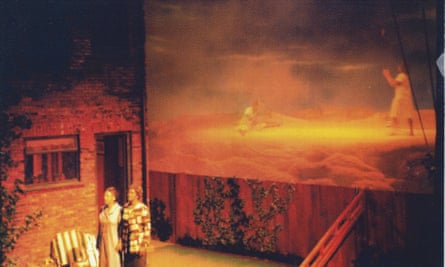When the theatrical lockdown ends, I suspect there will be a temptation to rely on the established canon. But over the next 12 weeks I will be exploring, in reverse chronological order, some forgotten plays from the last 120 years. I’ve confined myself to plays from the British and Irish rep but feel free, as the list unfolds, to add your own suggestions.
The No Boys Cricket Club (1996) was Roy Williams’s second play and was written in his final year at Rose Bruford College. You could say that it deals with a subject with which we have become familiar: the dashed hopes of first-generation Jamaican immigrants uneasily settled in Britain. But several things make this an exceptional play.

One is that Williams, as a young man, writes with unusual understanding about the disillusion of middle-aged women: he also shows, with ruthless candour, how they are frequently the victims of domestic abuse. But the real mark of the play’s originality lies in the easy interaction between two sides of the same character. The central figure, Abi, is a harassed widow coping with a drug-dealing son and a mutinous daughter. But we also see Abi communing with her younger, ambitious Jamaican self. Stoppard tellingly used a similar device a year later in The Invention of Love, where the 77-year-old AE Housman confronted himself as a 22-year-old student. The key difference is that the senior Housman views his missed opportunities with a wistful regret whereas Williams’s teenage Abi scolds and castigates her mature self, even forcing her to shed her passivity. In short, this is an optimistic play about the possibility of personal change.
Williams – who went on to write brilliantly about football in Sing Yer Heart Out for the Lads – here uses cricket as a crucial metaphor. The title derives from the fact that the young Abi was a key member of a teenage all-girls cricket team: it was her last-minute defection from a game against a boys’ club that cost her side the match and came to symbolise her lack of self-fulfilment. As the great Trinidadian writer CLR James points out in Beyond a Boundary, cricket has inescapable political connotations in a West Indian context, but Williams uses it to represent the potential for female advancement in a male-dominated culture. Williams has gone on to write many fine plays about the relationship between black and white youth, but here he tackles his own inheritance with exemplary freshness and vigour.

Comments (…)
Sign in or create your Guardian account to join the discussion